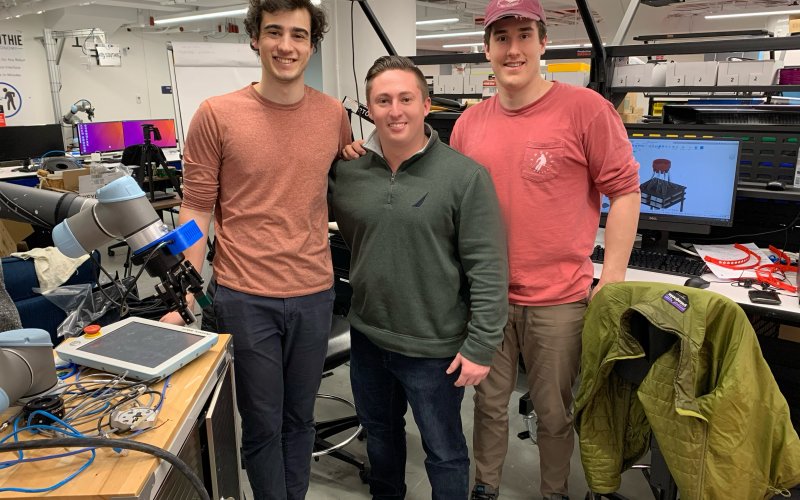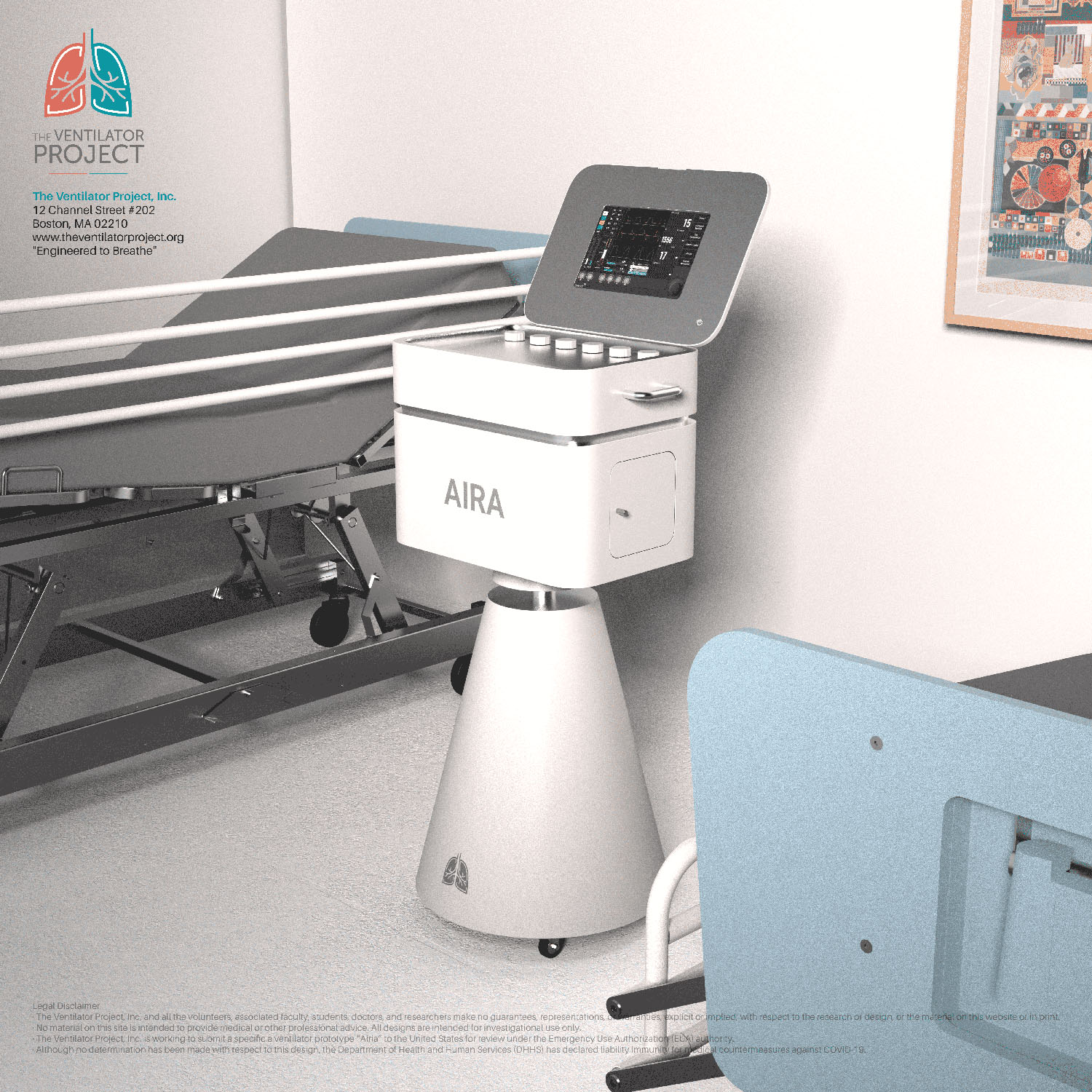Bees, Ventilators and the Supply Chain

The Ventilator Project
Ventilators, essential tools to keep compromised lungs pumping, are in short supply during the pandemic. The Ventilator Project is a start-up company based in Boston, established to produce ventilators specifically for COVID-19. Robotics experts are working with those in the medical and business fields to design and build ventilators more quickly and at lower cost while maintaining product quality.
Nick Domnisch ’15, who served as Delta Sigma Pi president while in school, had worked as senior advisor on another start-up of one of the Ventilator Project founders. In March, Domnisch packed an overnight bag, expecting to stay a day or two in Boston. He has not returned to New York City, caught up in the excitement, importance and work of the project.
“I was young when 9/11 happened but I remember how many people came together to help. This is my contribution to this crisis. When my kid asks what I did, I do not want to tell them that I was sitting in front of my computer watching Netflix,” said Domnisch.
When Domnisch arrived in Boston, there were five people on the team. Now there are more than 250. Because of his FINRA experience, he began work as FDA liaison, recently transitioning into the head of the sales and finance departments.
Bees and the Supply Chain
Domnisch said that the biggest hurdle was not engineering, but sourcing. Using a supply-chain-first approach, the team designed a ventilator that circumvents the current medical supply chain bottlenecks. Using bellows technology and materials outside of the typical medical equipment providers, they can build ventilators more quickly and more cheaply while maintaining product quality. Their prototype includes a feature not available on all ventilators, pressure assist, allowing the machine to sync with the patient’s breathing pattern rather working than against it.
Domnisch explained that because the medical device industry has huge profit margins and traditional ventilator parts are in short supply, the company was searching for materials outside of the medical supply chain. A key element is a food grade bellows. To work, it needed to produce enough volume and least amount of potential error points. During a brainstorming session, Nick came up with the ultimate solution: bee bellows used to smoke bees from hives. He admits that the idea came to him from a cartoon he had seen when he was a kid.
“We ran into some issues with our first and second versions and when we realized bee bellows could be a solution, we reengineered the prototype to include bee bellows,” said Domnisch.
The Need
The Ventilator Project, a non-profit organization, is requesting FDA emergency use authorization. With that approval, the manufacturing team is ready to produce 100 units by the end of May, 1,000 in June and scaling up to 50,000 per month.
The Financial Analyst Honors Program grad also shared that the need for more ventilators is not only based on the large numbers of people who contract the virus but also on the fact that COVID-19 patients generally need the equipment for 11 to 20 days, well more than the four days for other illnesses.

Their scalable solution ought to put a dent in the 13M unit global ventilator shortage. According to Domnisch, ventilators usually sell for $35,000 to $50,000, while their ventilators will cost $5,000.
It has been an incredible experience for Domnisch. He said, “A lot of people have come together to help. It is great to hear, ‘The U.S. Army is on the line for you,’ people who would have never answered my calls before.”
Working on The Ventilator Project team are a handful of UAlbany alumni who Domnisch recruited, including Bryan Doss ‘17, his partner at EE Solutions, the software development company they started together while at UAlbany. The company creates web apps for Fortune 500 companies. All but Domnisch are working remotely.
“This project has real importance to the world. I was happy to help in any way I could for this reason alone. I am motivated by others doing seemingly impossible things. The project goals are really ambitious, and it excited me from an engineering perspective,” said Doss, chief technology officer and partner at EE Solutions, who is working on the firmware team.
To help with marketing efforts. Tom Ferguson ’17 involved his marketing team from LIFTmktg, an ad agency based in Saratoga Springs, New York. Other School of Business alumni are working in financial modeling and sales.
Sam Cittadino ’18, whose day job is with a New York investment bank, is volunteering in sales and finance. He said, “During times like this we need to come together and help in any way we can, as this is truly a defining moment for our country and the rest of the world. Whether that is working on the frontlines as a healthcare worker, practicing safe social distancing, or being an active part of the solution like the good people at The Ventilator Project. They are working around the clock to develop low-cost and relatively quick-to-assemble ventilators in the fight against COVID-19. I have so much respect and admiration toward this group and happy to help in any way I can.”
The UAlbany VolunteersSam Cittadino ’18 Nick Domnisch ’15 Bryan Doss ’17 Tom Ferguson ’17 Steven Gagliardo ’15 Andrew Ginsburg ’15, ’16 Logan Mongelli ’18 Peter Rodrigues ’16 |


